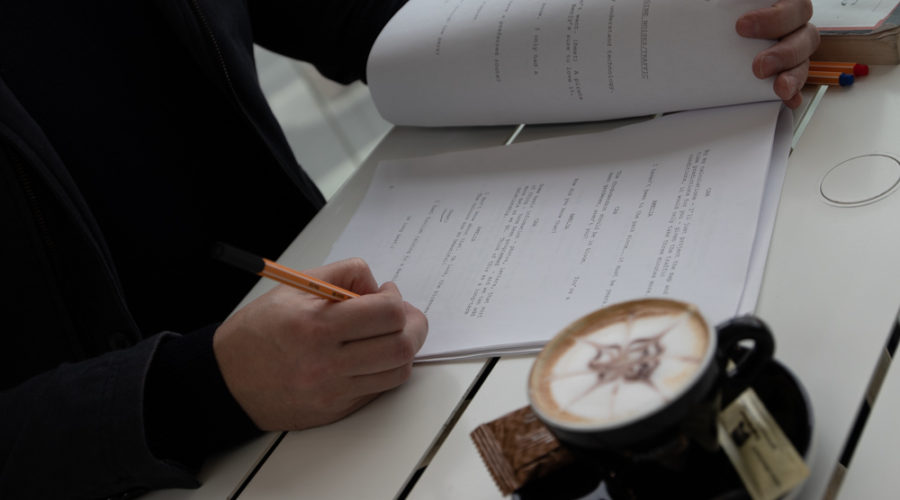By now we are familiar with the essence of a story: a character with a flaw (an incorrect world view that is making them unhappy) caused by a wound (a serious incident in their past that caused them to firmly believe this view) is presented with a serious problem that challenges this world view. They are face by a series of obstacles attempting to solve this problem (often in the form of a villain), things becoming worse until they overcome their flaw and become a whole person, or they fail and are doomed to misery.
But where does the villain fit into this?
Introducing the Villain
The most common form of obstacle is an antagonist – typically a villain. The advantage of an antagonist is that is an easy focus for the reader, and an excellent source of obstacles. Typically, they should embody some element of the protagonist’s flaw.
To take an example from one of our writer’s earlier stories, if our protagonist dislikes snakes (because her sister was killed by a snake when the protagonist was supposed to be watching her), then the villain could be someone who loves snakes, or someone who is trades in snakes, or someone trying to exterminate snakes, or, heck, they could be a snake.
But they also need to address the more profound aspect of the characters wound: in this case, by attacking the protagonist’s need to feel that they can protect everyone around them. By threatening the people she cares about, the villain will hopefully force the protagonist to overcome their belief that they have to responsible and in control all the time – because only by trusting people can she defeat the villain.
But there’s much more to it than that…
We’ve all read stories with rubbish villains. Villains who don’t seem to have any reason for what they are doing, who serve only to spout exposition and wild threats, who don’t have any personality of their own.
This single thing can ruin a story. Because a good antagonist is essential to a good story. If you villain is interesting enough, they can make your story great?
How do we do this? We start by remembering that the villain is a protagonist in their own right: they have something they want, a flaw that prevents them achieving it (stemming from an early wound), and an obstacle they must overcome: the protagonist. The villain’s objectives must be just as urgent as the protagonists, but simply incompatible. The villain’s efforts to overcome the obstacles that prevent them getting what they want (and are an expression of their flaws) must be just as desperate as the heroes.
They don’t just throw henchman in the way of the protagonist because it will be interesting for the story: they do it because it is the best way to achieve their goal. They don’t explain their plan because the story need’s exposition: the do it because it is the only way they can think of preventing what to them seems a disaster.
In this way you can think of your story as actually being two stories, between two antagonists, the difference being (usually) that only one overcomes their flaw, while the other is doomed by it. Which is which determining whether you are writing comedy or tragedy.
What does this mean for how I tell my story?
Well, it’s time for an exercise, don’t you think?
Take one of the following and, in two hundred words (writing ugly), tell it from the perspective of the villain:
- A classic folk or fairy story
- A Disney film (animation, marvel, or even Star Wars will do)
- A famous book series (SERIES) with a well-known villain: Twilight (not with Edward as the antagonist, that’s a bit more complicated: go for the psycho vampire in the first book), Harry Potter, The Belgariad, The Hunger Games, The Dark is Rising, etc.
Now here’s the clincher: I want you to absolutely convince me that the villain is the hero. You will note that in some of these stories the writers haven’t created fully fleshed antagonists. You’re going to correct that. In your version of this story, without changing any of the facts (although feel free to add non-contradictory ones). I want the “villain” to have an absolutely valid and justifiable desire that they are striving to achieve in spite of the “hero” in their path, and their desperate (DESPERATE) efforts to overcome their personal flaw stemming from a deep wound.
If you can make me like Voldemort, Torak, The Witch in the Candy house or whomever, if you can make me empathise with them and want them to win, you’ve won the exercise 😊
Have fun!
Post your response in the comments below or join the AU Forum
I’m on holiday for the first two weeks of August, so don’t be discouraged if I don’t respond straight away!



